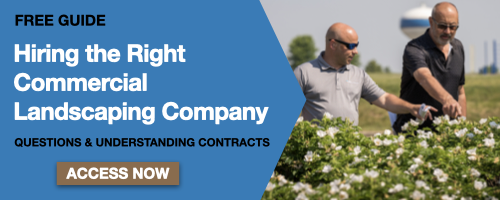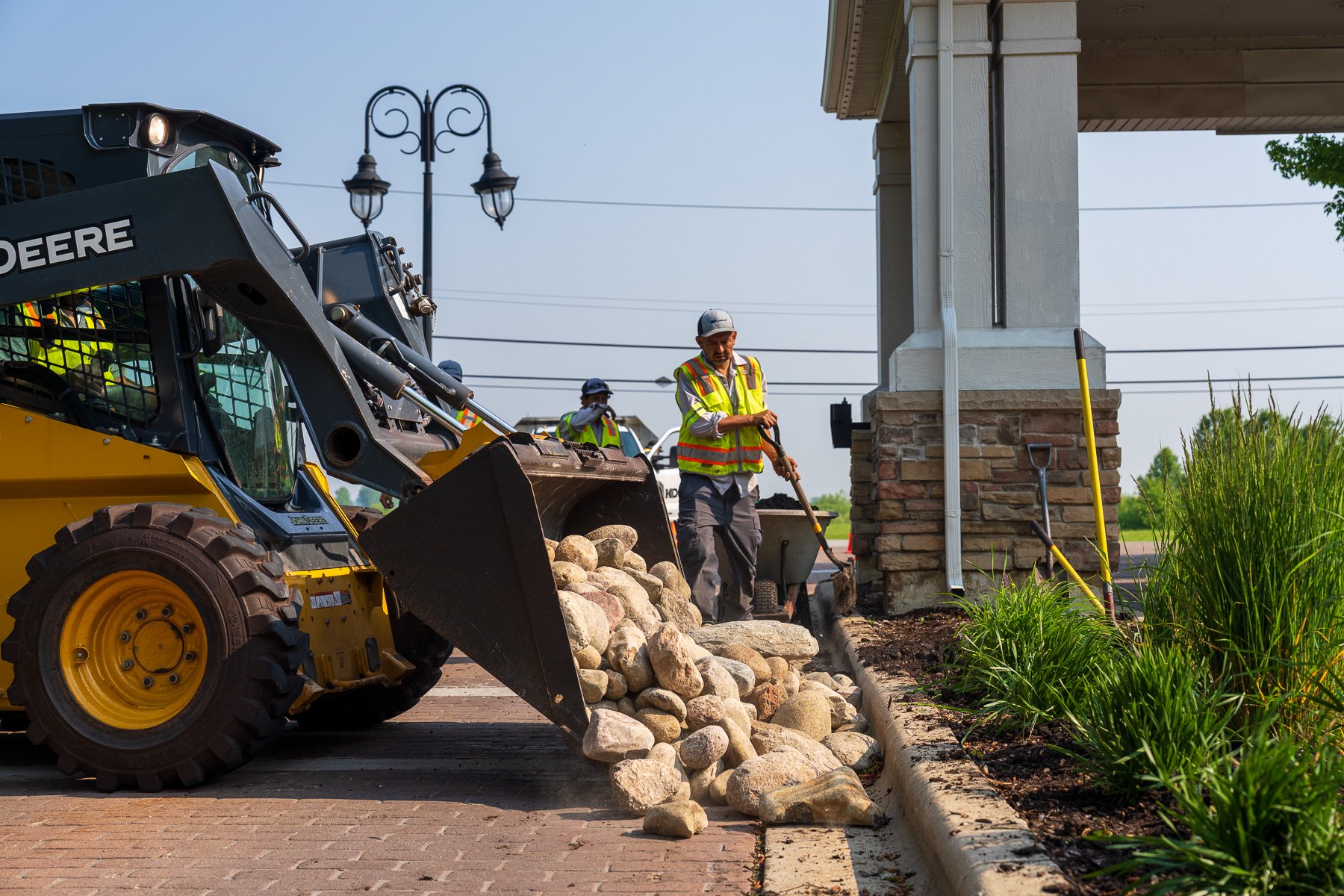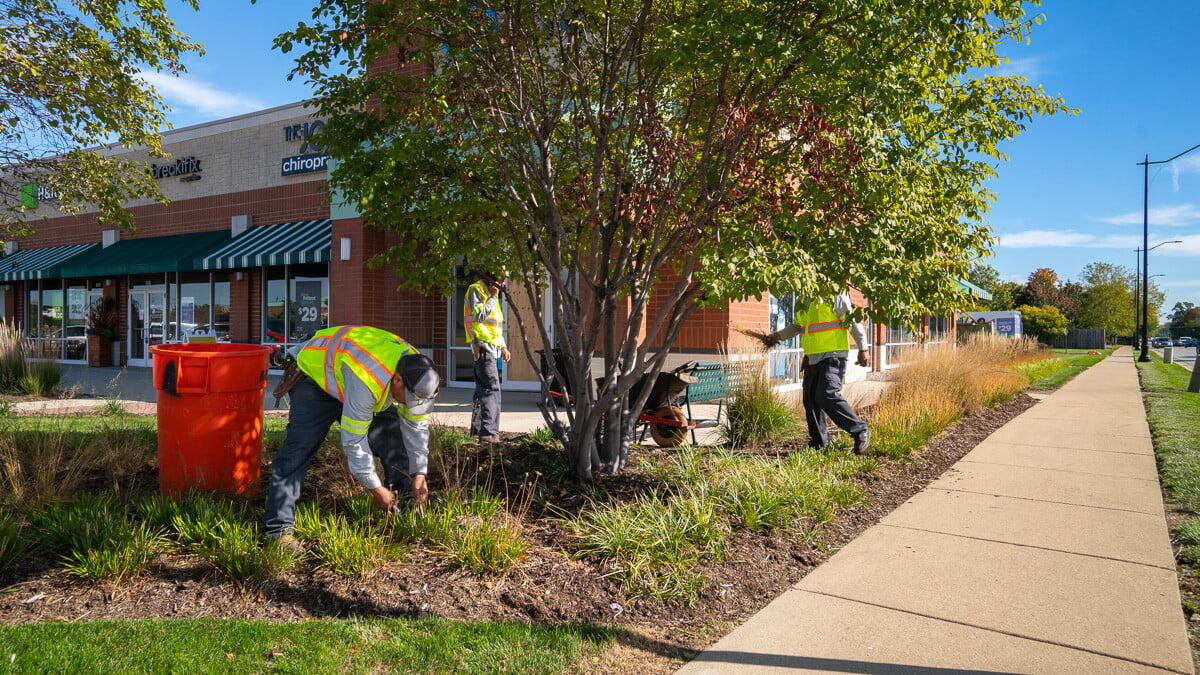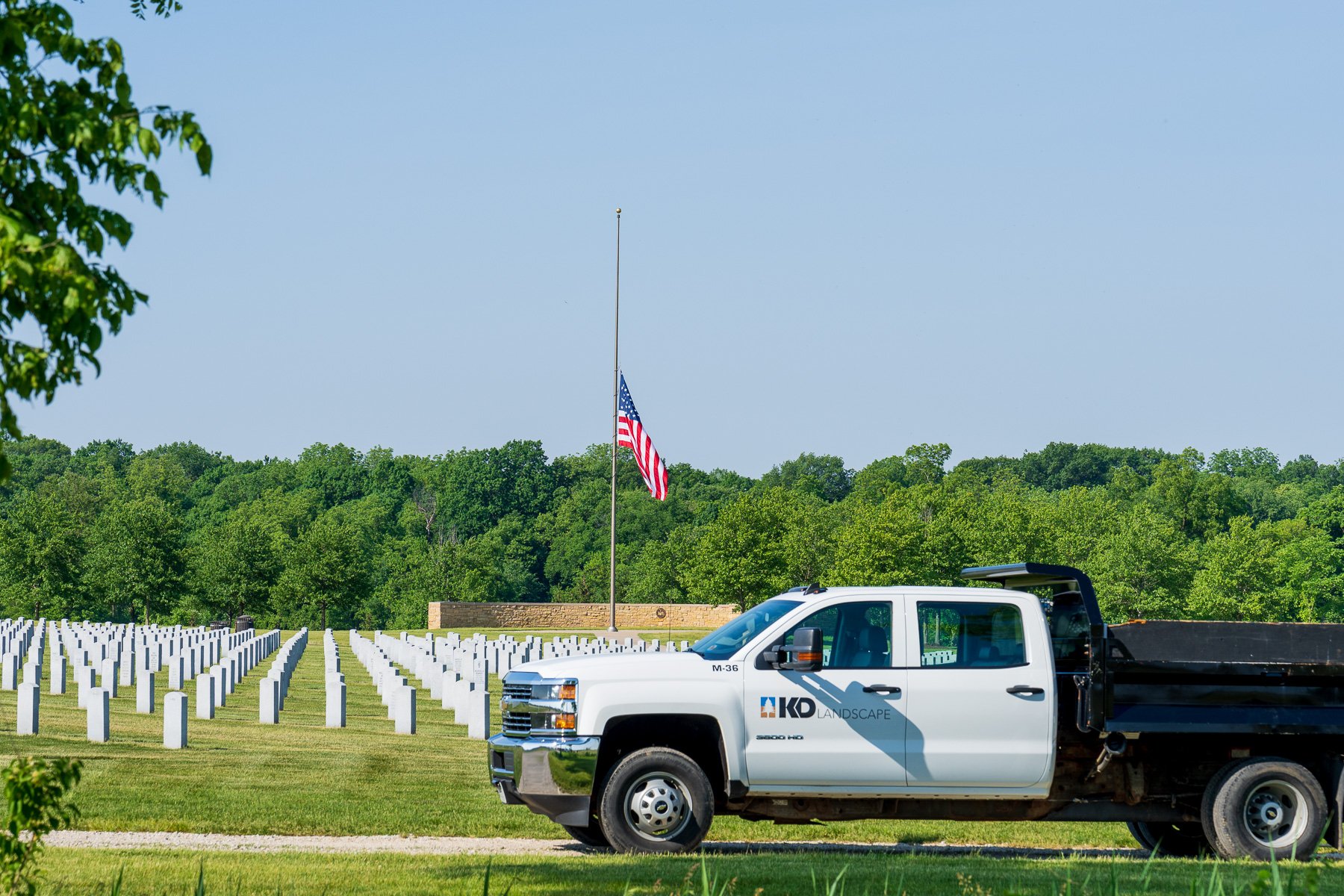Water plays a vital role in the health of your Greater Chicago commercial landscape throughout the growing season.
Whether it’s rainy or dry out, how you control and use that water that falls on your property or that you use through irrigation can have a big impact on the health of your valuable trees and plants, as well as your commercial maintenance budget.
This is especially true during unseasonably dry summers that heighten the need for irrigation. But when water usage becomes a concern, maximizing the efficiency of your irrigation system becomes important for you, the property manager. This is where using smarter strategies and staying on top of commercial lawn irrigation repair can help.
Let’s talk about commercial lawn sprinkler issues and the best ways to stay ahead of common irrigation problems to ensure you have the best strategies to use on your site.
Common Irrigation Problems
An efficient and properly functioning irrigation system is essential for delivering the right amount of water to keep your commercial landscape healthy and vibrant.
However, like any complex system, commercial lawn sprinklers can encounter a variety of issues that compromise their performance.
Here, we’ll highlight some common irrigation problems you’ll face on your site.
1. Uneven Water Distribution
When you have a lawn sprinkler issue like uneven water distribution, some areas of your commercial lawn will receive too much water, while others are left dry.
What causes this? You could have clogged sprinkler heads, improper sprinkler placement, or pressure variations.

Fixing this issue involves inspecting and cleaning sprinkler heads regularly to remove debris that can obstruct water flow, adjusting sprinkler heads to ensure uniform coverage and overlap between spray patterns, and checking for fluctuations in water pressure and adjusting the system pressure regulator or valve settings as needed to achieve consistent water distribution.
2. Leaks and Water Waste
When you have lawn sprinklers leaking or working inefficiently, you can have puddles, soggy patches, or excessive runoff.
This could be caused by damaged irrigation system components, improper installation, or overwatering.
To fix this, you want to inspect pipes, fittings, valves, and connections to look for signs of wear, corrosion, or damage. Replacing faulty components can prevent leaks and water waste.
Ensuring pipes are buried at the correct depth and fittings are securely tightened can also prevent leaks.
Also, overwatering can increase your water bill needlessly without creating a positive impact on your commercial site. Adjusting watering schedules and durations based on seasonal weather conditions and the specific needs of your landscape can help prevent excess water runoff and waste.
3. Low Water Pressure
Weak or inconsistent water flow from commercial lawn sprinklers can result in inadequate coverage and poor irrigation.
Clogged filters, partially closed valves, and irrigation system design issues can create this problem.

To alleviate this issue, clean or replace filters to remove sediment, debris, and mineral deposits that can restrict water flow. Also, check that valves in the system are open to allow maximum water flow and maintain optimal pressure.
Additionally, evaluate the layout and design of your commercial irrigation system to identify potential bottlenecks or restrictions that may be causing low water pressure. Renovating or upgrading your system can help improve performance.
4. Controller Malfunctions
Erratic or inconsistent watering schedules, failure to turn on or off, or programming errors indicate lawn sprinkler issues with the irrigation controller.
You’ll want to check that your controller is receiving power and has secure electrical connections. Also, review and reprogram the irrigation schedule to ensure it aligns with the watering needs of your commercial landscape.
Finally, verify that rain sensors, moisture sensors, or weather-based controllers are functioning correctly and not causing conflicts with the irrigation schedules.
5. Inadequate Coverage or Overspray
When your irrigation water reaches non-target areas such as sidewalks, buildings, or roadways, you’re wasting water and may even potentially cause damage.
To check this common irrigation problem, choose sprinkler nozzles with the appropriate spray radius and pattern to match the size and shape of the area you’re irrigating.
Improve coverage by replacing mismatched or inefficient nozzles. Adjust the direction and angle of sprinkler heads to prevent overspray and ensure that water is directed where it’s needed most.
On top of these fixes, you can also trim back trees and shrubs, remove obstacles, or adjust landscape features that may be blocking or deflecting water from reaching intended targets.
Improve Water Usage and Commercial Irrigation System Efficiency
After an inspection that identifies your common irrigation problems, you can strategically implement a plan to make improvements.
Turf areas, new trees, and mature trees and shrubs have different watering needs and will require different types of irrigation, so take this into account as well. To meet these needs, your irrigation system can include a mix of sprinklers for large, open areas like turf and soaker hoses for directing water to tree and shrub roots.
Proper timing matters as well. If you water your property during the heat of the day, you’ll lose a lot of that to evaporation, and if you water during the evening, you open your plants up to potential diseases. Morning watering remains the best time to maximize irrigation efficiency and limit pests and diseases.
Paying attention to the weather is another crucial consideration for maximizing water efficiency on your commercial site. Staying up-to-date on rainfall allows you to be more precise with your irrigation and avoid embarrassing situations like running your system during rain. Installing rain sensors or soil moisture sensors can help prevent this, too.
Maximize Your Commercial Irrigation Efficiency with KD Landscape
You never want to set your irrigation system to run and then forget about it.
To conserve water, save money and prevent common irrigation problems, you want to watch the weather, monitor your irrigation system, keep an eye on your plants to notice any issues that result from too little or too much water, and talk about your irrigation concerns with your commercial grounds management professional.
In fact, partnering with the right commercial landscape company in Greater Chicago can ensure these elements are incorporated into your maintenance plan so you don’t miss a beat. Let KD Landscape help by answering your questions and getting you on the right path for watering success.
Want to improve your commercial landscape’s health and create a great-looking property that looks good and isn’t wasting your budget dollars? KD Landscape can help. Get started today with an on-site consultation. Together, we’ll customize a plan that gives you the most attractive commercial facility in Greater Chicago.
Image Source | Sprinkler Head, Sprinkler Head in Grass








